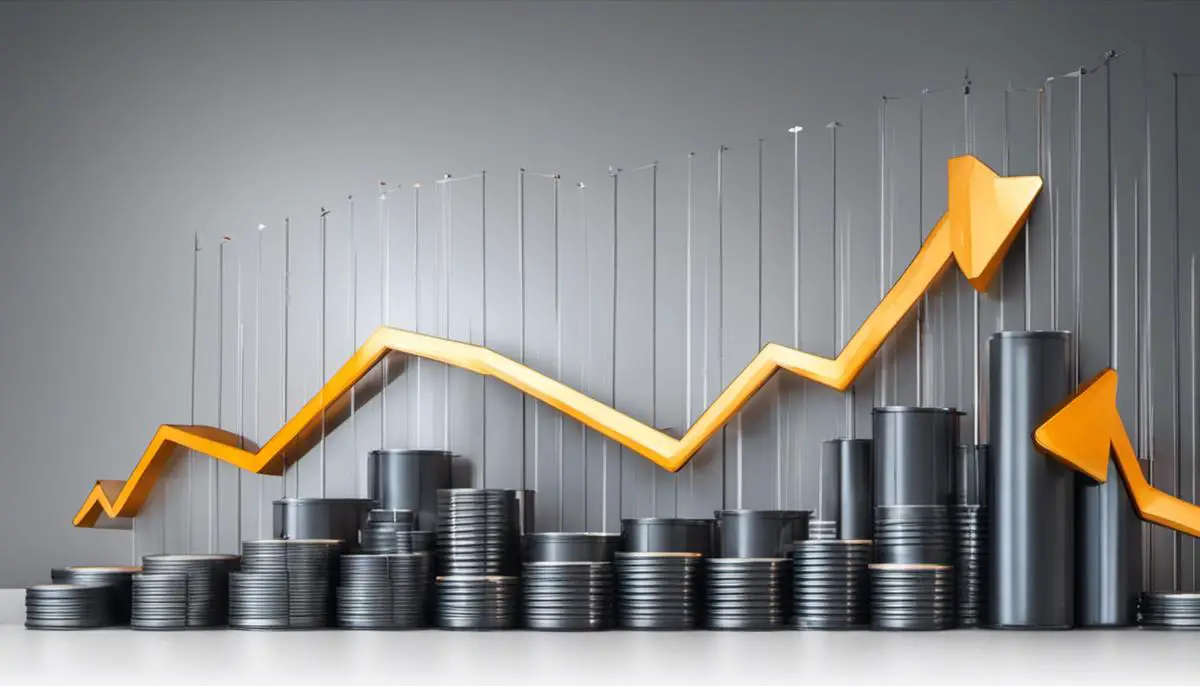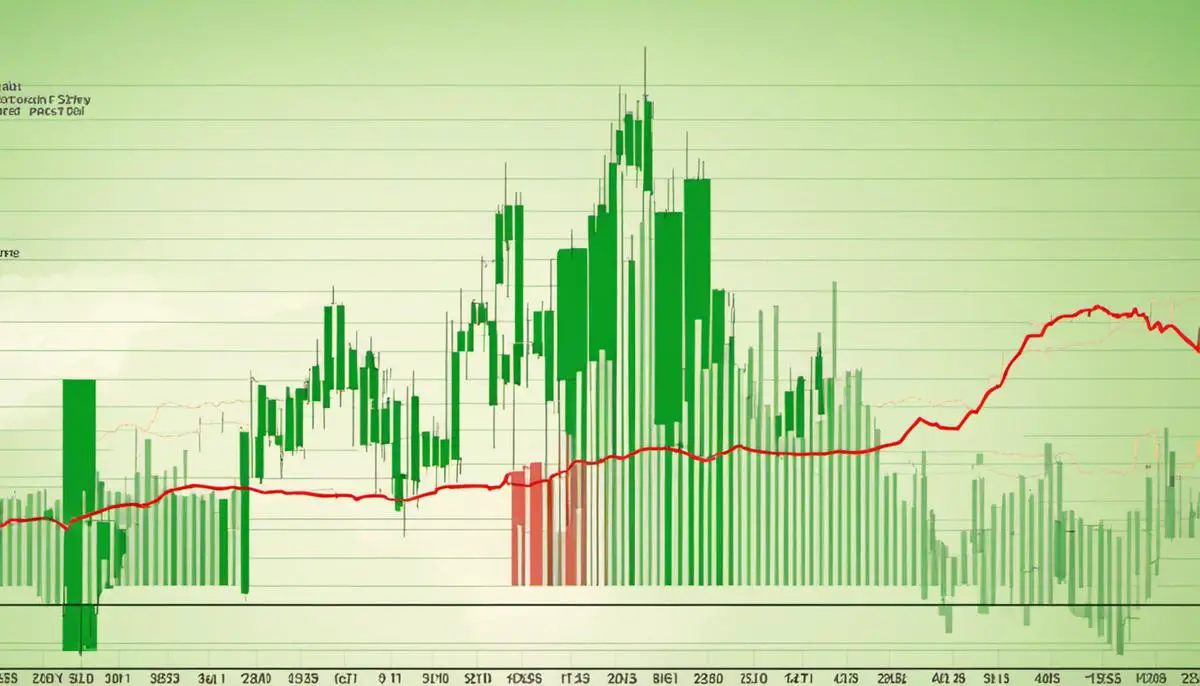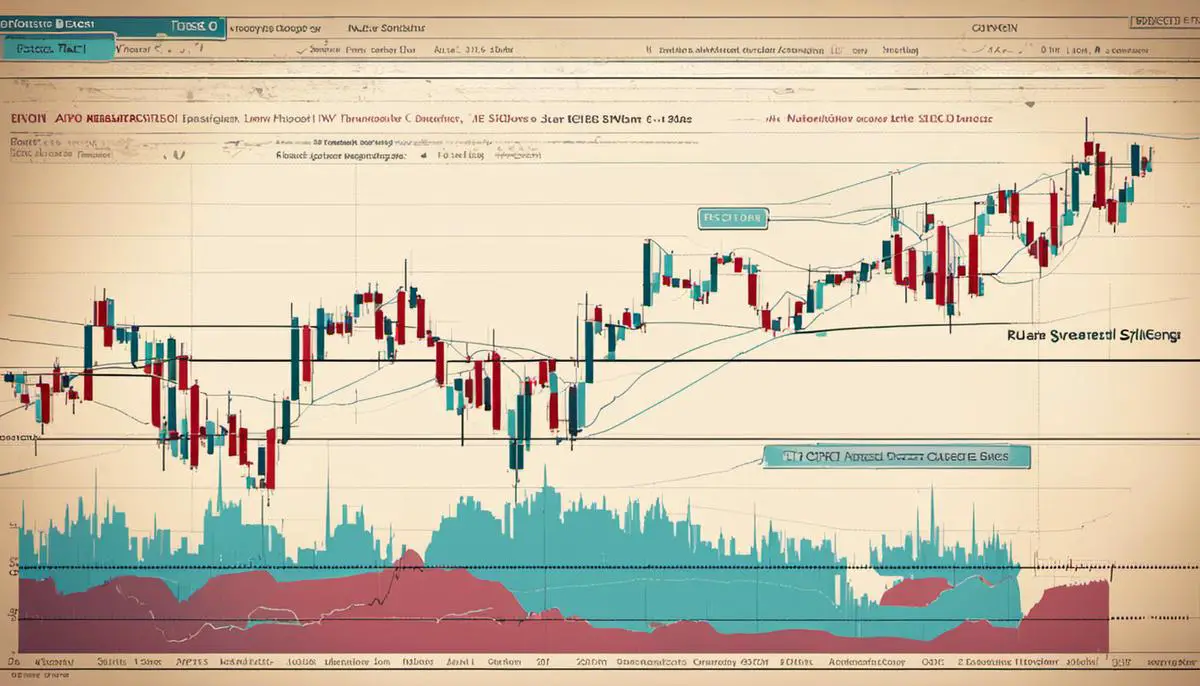In the interconnected world that we live in, the concept of buying and trading currencies seems a distant idea confined to the realm of multinationals and large corporations. However, Foreign Exchange, colloquially known as Forex, is a massive decentralized global market wherein currencies are traded, serving as a real and accessible avenue for earning profits. Amid the maelstrom of financial jargon and intricate market dynamics, this comprehensive guide aims to demystify the essence of Forex trading; understanding its fundamental mechanisms, the role of regulatory bodies, the risk and reward dynamics at play, and the strategies employed in navigating this complex landscape.
Understanding Forex Trading
Forex trading – two words that have been bouncing around in the realm of entrepreneurship and investment stirring excitement and curiosity. This increasingly popular marketplace isn’t rocket science or an impenetrable industry vault; rather, it’s a highly fluid, dynamic platform bubbling with potential for astute, forward-thinking entrepreneurs.
At its core, Forex trading, also known as foreign exchange trading, is all about currency. We’re talking dollars, euros, yens, pounds, and all other currencies you can think of. They serve as the lifeblood of this marketplace.
Here’s the twist – the game isn’t about collecting different currencies. Instead, it’s about wisely predicting how their relative values will fluctuate over time.
Now, some may quirk an eyebrow, questioning, “How does that create profit?” Think of it like this: Imagine you manage to acquire a currency that’s predicted to soar in value shortly. Once the value ascends, you can exchange it for another currency, thereby making a profitable trade. Simple as that!
The use of currency pairs is a staple in Forex trading. Each pair consists of a base and a quote currency. To exemplify, if we consider the pair EUR/USD, the Euro is the base, and the US Dollar is the quote. When trading this pair, you’re effectively predicting how the Euro’s value will shift relative to the US Dollar.
Forex trading is open 24/7, globally, facilitated by four major exchanges—New York, London, Sydney, and Tokyo. Accessibility at all hours negates the “opening bell” concept seen in traditional stock markets, offering an unprecedented level of flexibility – a crucial boon for the atypical schedules of modern entrepreneurs.
But what makes Forex trading tick? A multitude of factors come into play, including economic stability, inflation rates, political scenarios, and market psychology. However, mastering these factors isn’t enough. A successful trader couples deep market insight with analytical acumen, risk management skills, and – perhaps above all – exceptional patience.
Now, engaging in Forex trading does come with substantial risk, given its volatile nature. High rewards often correspond to high potential losses. Hence, newcomers must articulate a well-thought-out strategy, understanding the market dynamics while keeping emotions at bay. Without level-headed decision-making and diligent research, one can quickly veer off-track.
However, with the right tools at one’s disposal, disciplined approach, and continuous learning, the world of Forex trading can be intelligently navigated. This ever-evolving river of currency exchange flows with both challenges and opportunities. It is a high-stakes chess game where your acuity, agility and propensity for innovation will decide how many steps ahead you stay of the rapidly flowing current.
Forex trading, in essence, offers a platform for both entrepreneurial growth and financial prowess. It fuels the innovative drive, inspiring one to think unconventionally, predict strategically, and act boldly. After all, in the world of Forex trading, as in business, fortune favours the bold.
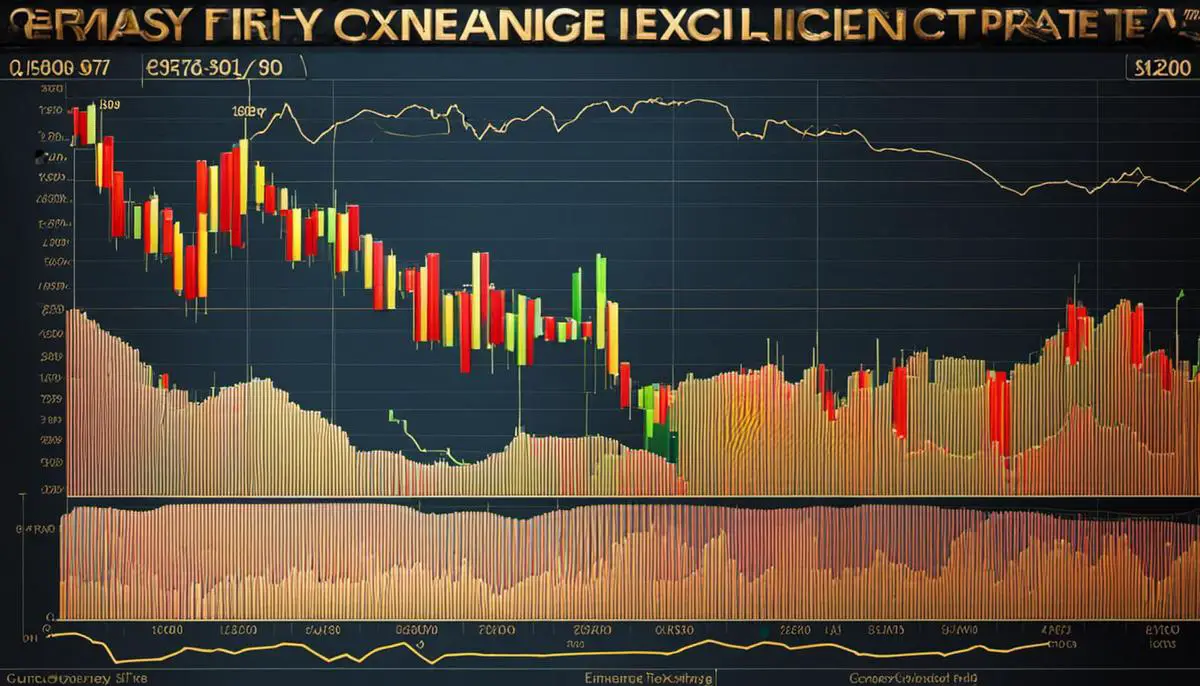
Regulations and Legalities
Stepping beyond the nuances of navigating the Forex trading market, it’s essential to approach the pertinent question of regulation and trustworthiness. A question often asked is whether Forex trading is adequately regulated, and if indeed it can be trusted. The discussion needs to hinge on transparency, regulatory supervision and customer orientation keynotes that bind the global Forex marketplace.
Forex trading is indeed regulated, albeit it’s not under the watch of a single overarching entity. Instead, it’s supervised by a multitude of regulatory bodies, each responsible for ensuring fair, transparent, and legal trading within a certain geographical area. Such regulators include the Financial Conduct Authority (FAC) in the UK, the Australian Securities and Investments Commission (ASIC) in Australia, and the Commodity Futures Trading Commission (CFTC) in the US. This ensures that brokers and traders operate within the confines of the law and that unethical or fraudulent activities are swiftly brought to justice.
A regulated Forex trading market truly is an investor’s stronghold; misbehaviour is less likely to take place in regulated markets since dishonest brokers risk facing substantial fines or getting stripped of their licenses. This regulation isn’t merely a show of might; it’s an investor safety net, ensuring that brokers maintain high standards of commercial and investment behaviour.
Can it then be trusted? In many ways, the level of trust in Forex trading echoes the existing trust in financial systems and economic structures globally. It’s substantial, subject to the rules of free market economics and driven by the principle of self-regulation. Yet, being a self-regulated market doesn’t shield Forex trading from scrutiny. As with any other speculative trading platform, risks persist, and they’re only amplified by the absence of a global regulatory body and the differing standards among local regulatory entities.
Despite the associated risk, due diligence and strategic investment can turn Forex trading into a profitable venture. Regulated brokers often offer security measures such as segregated accounts to protect clients’ funds and insurance schemes to compensate clients in case of broker insolvency. Added to this, many brokerage firms and trading platforms adhere to stringent transparency checks and offer detailed performance data, allowing investors to make informed decisions before diving headfirst into the world of Forex trading.
In essence, Forex trading’s trustworthiness rests on one’s ability to navigate the complexities of the market, an intuitive understanding of global factors influencing currency fluctuations, and the ability to differentiate between legitimate, regulated brokerage firms and potential fraudsters.
Remember that successful Forex trading is not merely about turning a profit; it’s about cultural knowledge, risk assessment, and an unwavering commitment to ethical trading practices. In these parameters lies the strategic significance of Forex trading as an innovative, flexible, and rewarding platform for financial growth and entrepreneurial prowess. Trust and reliance, therefore, become inevitable by-products of a diligent, meticulous investor’s journey.

Risk and Reward Dynamics
Delving into the labyrinth of Forex trading requires more than just understanding currency fluctuations, pairs, and market influencers. Just as essential is your understanding of regulations, the vital role they play in this global marketplace, and how your ability to navigate this complex environment can significantly impact your entrepreneurial journey.
In the world of Forex, regulation isn’t just an accessory; it’s the backbone. A regulated Forex market is credible, reliable, and secure. Never underestimate the importance of trading with regulated brokers. They offer increased protection against fraudulent practices, ensuring robust security measures for your transactions. These safety nets should not be second-guessed nor dismissed. They uphold the integrity of the market and guarantee that your hard-earned investments are afforded the protection they deserve.
Various regulatory bodies supervise Forex trading worldwide. These include the Financial Conduct Authority (FCA) in the United Kingdom, the Commodity Futures Trading Commission (CFTC) and the National Futures Association (NFA) in the United States, and the Australian Securities and Investments Commission (ASIC) in Australia, among others. Their major role? Ensure brokers adhere to trading practices that are ethical, transparent, and resilient to financial malfeasance.
Regulated brokers offer transparency, allowing traders access to valuable performance data. This information empowers Forex traders to make savvy decisions based on quantifiable and verified data—not just conjecture. Having access to an unfiltered view of the market, along with a regulated broker’s guidance, ensures your market strategies remain agile and effective.
Diving into these oceans of currencies is undeniably complex; however, successful entrepreneurship calls for this cultural knowledge and risk assessment adeptness. Forex trading isn’t just about numbers. It encompasses observing global trends, understanding regional financial climates, and forecasting political stability. As with all entrepreneurial pursuits, Forex trading is about envisioning the bigger picture and deploying an astute strategy to churn disruption into opportunity.
Straddling the ethical line can be tricky, yet there’s an absolute imperative to maintain clean trading practices. The ethical compass needs to be firmly in place – not only for the fortitude of your conscience but because regulatory bodies employ stringent measures for ethical violations. Penalties can range from fines to being stripped of trading licenses, both casting significant shadows on professional reputations.
In conclusion, your understanding of regulations, your guidance from credible brokers, and your commitment to ethical trading practices, along with your savvy navigation skills, can launch you into the sphere of entrepreneurial success in the Forex trading world. Where risks meet opportunities, success lies. If you ever needed a sign to venture into the Forex market – this is it. And remember, your success hinges on your readiness to embrace risks while smartly harnessing possible returns.

Market Analysis and Strategies
Delving into the heart of Forex trading, seamless navigation through an array of effective techniques can crown you as a champion of this craft. The trade’s nonpareil essence resides in strategical measures, focused meticulousness, and deft analyses synonymous with the profound attributes of a venerated entrepreneur.
In the realm of Forex, trading strategies hold a profound significance and are multifarious. These strategies empower traders to make enlightened decisions, mitigating risks and optimising profits. To underscore a few, day trading, swing trading, scalping, position trading, and high-frequency trading are potent means to ardent success.
Day trading, famously preferred by magnates in the city, demands a technical analysis and hourly fluctuations monitoring within a single trading day. Swing trading, falling in the medium-term category, thrives on capturing the ‘swing’ within the market trend. Scalping, a slightly unorthodox method, banks on taking advantage of small price gaps created by bid-ask spreads. Differently, position trading and high-frequency trading focus on the long term and swift algorithms to seize trading opportunities, respectively.
Strategic execution cannot brim with success sans comprehensive analysis of the Forex Market. Two widely accepted techniques, fundamental analysis and technical analysis, steer traders in the right direction.
Fundamental analysis, a sturdy companion of numerous successful entrepreneurs, grazes on the implications of significant economic news releases, deciphering how said information might induce fluctuations in currency values. A prime example rests with interest rate changes by central banks, which can lead titanic shifts in Forex trading.
Contrastingly, technical analysis banks on graphic representations to identify patterns and trends in currency prices. An astute entrepreneur’s knack, it explores historical data via charts and quantitative analytics, following the adage “history tends to repeat itself”. Thus, it aims to evaluate future trends on historic data trail to bolster profit margins.
Another tool in an entrepreneur’s arsenal is sentiment analysis, capitalising on market sentiment, essentially the traders’ collective attitude towards the market. It provides insight into the trading decisions of other market participants, exerting influence over currency price movements.
However, echoing the virtues of a authentically savvy entrepreneur, understanding basic psychology also plays a pivotal role in Forex trading. Unveiling the mystery of market movement and trading decisions often lie in human psychology. For instance, the fear of missing out (FOMO) or herd mentality often influences trading decisions at large, ultimately impacting the market.
In conclusion, the effectiveness of a trading strategy significantly depends on a thorough, well-rounded understanding of the Forex market, incorporating adept analytical techniques, psychological acumen, and a knack for spotting trends and patterns. As in entrepreneurship, successful Forex trading requires a blend of audacity, ingenuity and strategic prowess. Remember, the pathway to profitability isn’t always a linear trajectory, but a series of calculated risks and agile pivots guided by the strategy at hand.
Adept management of these approaches leads to distinguished success, echoing tenets of groundbreaking entrepreneurship in the very domain of Forex trading. Emulating the strategic prowess and in-depth know-how of an entrepreneur, one can confidently navigate through the domain of Forex trading, shaping a new echelon of unparalleled success.
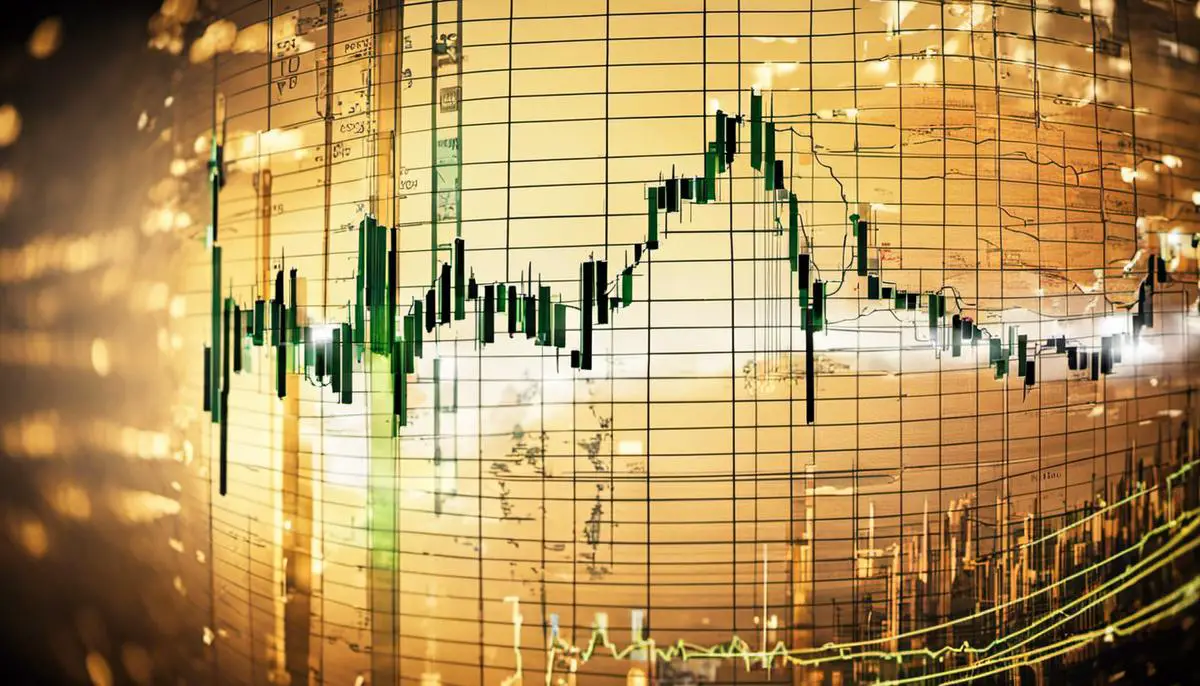
Choosing a Forex Broker
Embarking on the journey of Forex trading involves many crucial components, and one vital aspect is the selection of the right Forex broker. The right broker serves as a navigator in the tumultuous ocean of the Forex market, steering efficiently through stormy weather – volatile market conditions – and calm waters alike.
Forex brokers are the bridge between traders and the liquidity providers, such as banks and hedge funds. Therefore, one must select a broker with deliberate thought and discretion, factoring in the broker’s reputation, transaction cost, trading platform, customer service, and most notably, how the broker is regulated.
Bearing in mind regulation, traders should hone their attention to brokers who are regulated by a globally recognised entity. It is a non-negotiable criterion as regulatory bodies enforce strict standards, ensuring the Forex broker operates in a transparent and ethical manner. The FCA in the UK, ASIC in Australia, and CFTC in the US are few robust regulators that investors can rely on for their broker’s regulation.
It’s equally important that traders choose a broker that offers a trading platform that caters to their specific needs. For example, advanced charting tools, real-time news feeds, and a user-friendly interface are pivotal components for some traders. With technology advancing at a rapid pace, it’s also essential the chosen platform offers a competent and intuitive mobile trading app for those who prefer trading on the move.
Perhaps the most immediate concern for traders is the transaction cost via spread or commission. Here, remember that the lowest cost does not always equate to better value; brokers that accommodate tight spreads can quite often afford to do that because they’re saving costs in other critical areas. A cocktail of competitive transaction cost and effective service should be targeted.
Customer service is another often overlooked factor. Trading often takes place in real-time and there’s no room for unnecessary delays – an effective and responsive customer service team can make a world of difference.
In essence, the right Forex broker should operate like a trusted business partner; ready to aid in understanding market complexity, minimising risks, and maximising profit. With an assemblage of the right attributes, Forex traders should find the journey less arduous and more rewarding.
While the mission to find the right Forex broker requires meticulous scrutiny of many aspects, the pay-off can be substantial. In the cosmos of Forex trading, the right broker serves as an invaluable compass, guiding traders towards financial success and resilience. So, tread wisely and choose smartly, the right Forex broker can be the difference between trading success and failure.
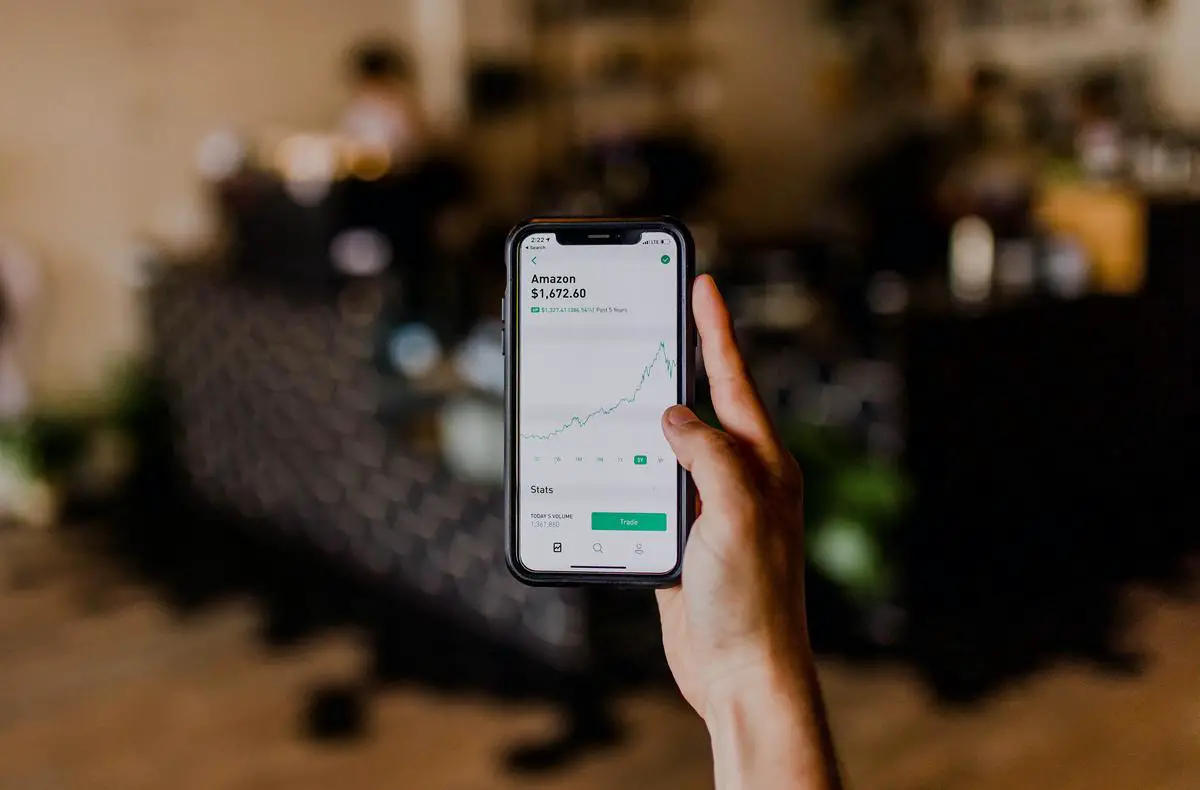
Photo by austindistel on Unsplash
The pursuit of Forex trading demands a deep understanding of market behaviours and a stringent regulatory awareness. This trading arena offers an opportunity for those seeking to diversify their financial portfolios and unlock potential gains. Nevertheless, one must acknowledge the inherent risks involved. It is crucial to go beyond the mere mechanics of trading and delve into a strategic perception, coupled with a balanced perspective of the risks and rewards. Remember, choosing a reliable Forex broker not only simplifies the trading process but also instils confidence during your financial journey. Thus, armed with knowledge and comprehendible trading methodologies, thriving in the Forex market is a possibility for those who approach it with diligence and prudence.

